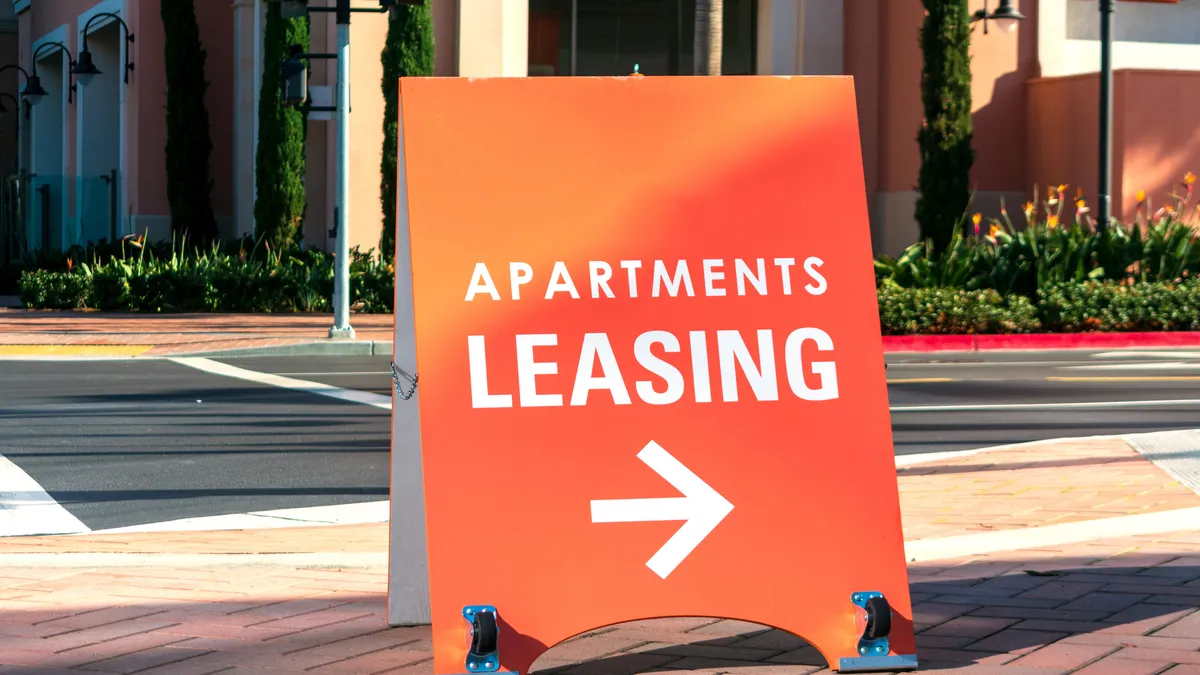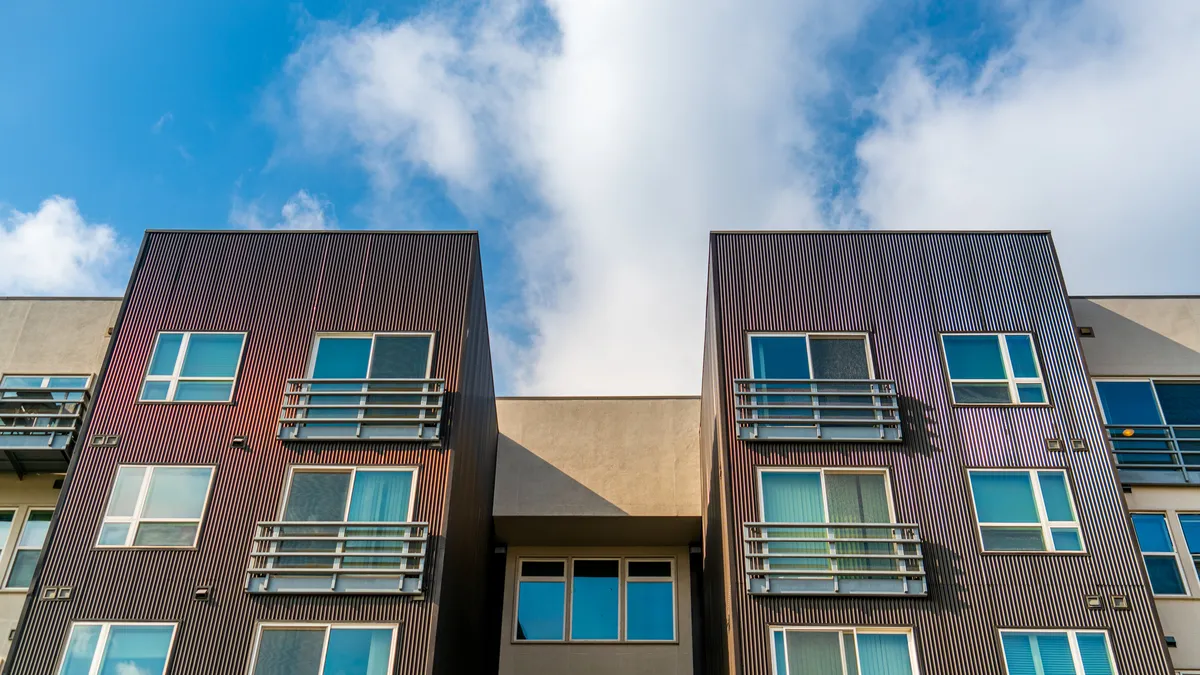Dive Brief:
- The National Multifamily Housing Council’s Market Tightness Index came in at 47 in the third quarter of 2024, up from 41 points in April and 23 in January, indicating higher vacancy rates and lower rent growth, according to the NMHC’s latest quarterly survey of apartment market sentiment, released on July 22.
- An MTI reading above 50 indicates that, on balance, apartment markets around the country are getting tighter; a reading below 50 indicates that market conditions are getting looser; and a reading of 50 indicates that market conditions are unchanged.
- While this quarter’s MTI rating still indicates loosening conditions, it is the highest rating the index has had in two years. Three of the four index values have risen relative to the previous quarter, apart from the Equity Finance Index, which is unchanged.
Dive Insight:
Orphe Divounguy, senior economist at Zillow, noted a “divergence in the sentiment” on the survey’s main metrics in the NMHC’s recent webinar on the results. “[Some people] are feeling like the market is looser, like things are not improving very fast,” he said, “and [others] are feeling like they’re on the cusp of a turnaround.”
For instance, in the base survey results, 22% of respondents said conditions were tighter than they were three months ago, while 27% said they were looser. Roughly half of respondents across all indices — between 44% and 60% — reported no change in the indicated conditions.
These conditions vary widely from place to place, depending on individual market factors, according to Divounguy. “During COVID, residents were moving to markets not only where it was more affordable, but also easier to build,” he said. “That’s why we’ve had such a great response in supply and lower inflation-adjusted rent growth over the past four years compared to the previous five years.”
Future conditions
When asked about the odds on whether President Joe Biden’s recently announced proposal to restrict tax incentives for property owners that raise rents by more than 5% per year would be approved, Divounguy said that the prospect was not anything that kept him up at night.
“We’ve seen it come and go, we’ve seen politicians bring up rent control over and over,” he said. “It’s failed so many times… I think it’s just something that made the news a little bit, and will eventually dissipate.”
Overall, the U.S. economy is still on solid ground, Divounguy said. The labor market has not faltered despite the interest rate environment, and immigration has boosted the U.S. population, and in turn the demand for apartments.
High interest rates and housing costs are still driving some would-be homeowners toward renting. In Zillow’s house-hunting activity, 64% of renters had considered buying a home before eventually deciding on a rental.
Nearly half of all renters are considered cost-burdened. However, rent affordability has stabilized in the past year, according to Divounguy. After a period of rapid rent growth in the past couple of years, wages are now rising faster than rents. “[Wage growth] is roughly 3.9% year over year right now, while rent growth is much lower,” he said. “So you’re starting to see improvements in affordability.”











